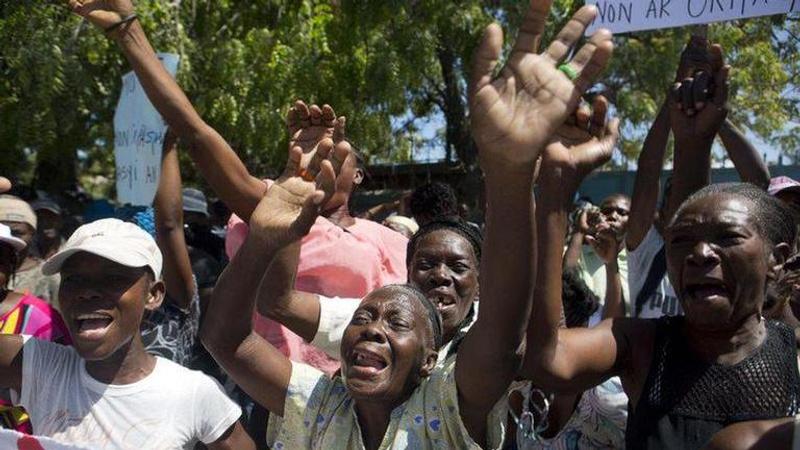Published 09:21 IST, October 20th 2020
Haitians demand justice over cholera outbreak
In Haiti, family members and victims of the 2010 cholera outbreak marched on Monday to the Artibonite River, where a decade ago United Nations troops dumped waste that caused one of the biggest cholera outbreaks in the country's history.

In Haiti, family members and victims of the 2010 cholera outbreak marched on Monday to the Artibonite River, where a decade ago United Nations troops dumped waste that caused one of the biggest cholera outbreaks in the country's history. Dozens of demonstrators walked for more than two hours towards the U.N. Stabilization Mission former camp near the river that people still use to wash clothes and collect water to drink.
They also participated in a Catholic Mass to pay tribute to the victims. The epidemic disrupted the country, and "hit the children of the region who have not yet found the necessary justice." said Father Romel Eustache, priest of the community. Haiti's cholera epidemic was traced back to a U.N. facility on the Artibonite River, near a base for Nepalese peacekeepers in the town of Mirebalais. Nepal was in the grip of its own cholera outbreak at the time its troops arrived in Haiti.
For years the U.N. denied or was silent on allegations that it was responsible for the outbreak, which researchers said U.N. peacekeepers from Nepal inadvertently started. In 2016, then Secretary-General Ban Ki-moon apologized for the UN's failure to contain the spread and admitted that its peacekeeping troops played a significant role in the spread of the disease, which killed nearly 10,000 people in Haiti. Haitians have tried to sue the United Nations for its part in creating the epidemic, but the U.N. has claimed diplomatic immunity.
(Image Credits: AP)
Updated 09:21 IST, October 20th 2020




